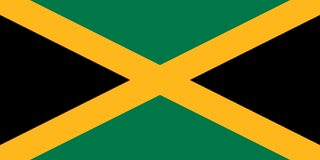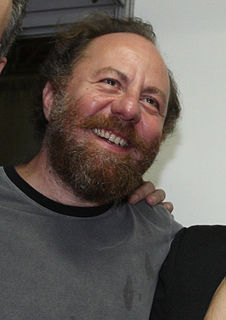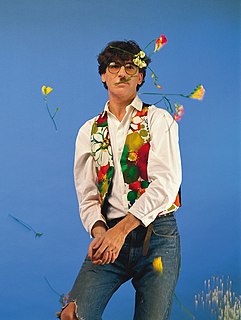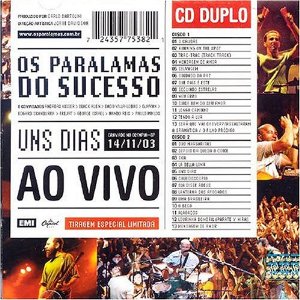This article does not cite any sources .(May 2016) (Learn how and when to remove this template message) |
| Bora Bora | ||||
|---|---|---|---|---|
 | ||||
| Studio album by | ||||
| Released | February 1988 | |||
| Recorded | 1988 | |||
| Genre | Reggae rock, new wave, dub, soca | |||
| Label | EMI | |||
| Producer | Carlos Savalla, Os Paralamas do Sucesso | |||
| Os Paralamas do Sucesso chronology | ||||
| ||||
Bora Bora is the fourth studio album by Brazilian rock band Os Paralamas do Sucesso, released in February 1988. Characterized by a tropical, Caribbean-esque instrumentation, the album's main hits include "O Beco", "Uns Dias" and "Quase um Segundo". It sold more than 20,000 copies in Europe.

Brazil, officially the Federative Republic of Brazil, is the largest country in both South America and Latin America. At 8.5 million square kilometers and with over 208 million people, Brazil is the world's fifth-largest country by area and the fifth most populous. Its capital is Brasília, and its most populated city is São Paulo. The federation is composed of the union of the 26 states, the Federal District, and the 5,570 municipalities. It is the largest country to have Portuguese as an official language and the only one in the Americas; it is also one of the most multicultural and ethnically diverse nations, due to over a century of mass immigration from around the world.
Rock music is a broad genre of popular music that originated as "rock and roll" in the United States in the early 1950s, and developed into a range of different styles in the 1960s and later, particularly in the United States and the United Kingdom. It has its roots in 1940s and 1950s rock and roll, a style which drew heavily from the genres of blues, rhythm and blues, and from country music. Rock music also drew strongly from a number of other genres such as electric blues and folk, and incorporated influences from jazz, classical and other musical styles. Musically, rock has centered on the electric guitar, usually as part of a rock group with electric bass, drums, and one or more singers. Usually, rock is song-based music usually with a 4/4 time signature using a verse–chorus form, but the genre has become extremely diverse. Like pop music, lyrics often stress romantic love but also address a wide variety of other themes that are frequently social or political.

Os Paralamas do Sucesso is a Brazilian rock band, formed in Seropédica, Rio de Janeiro, in the late 1970s. Its members since 1982 are Herbert Vianna, Bi Ribeiro (bass), and João Barone (drums). In its beginning, the band combined reggae and ska with rock, but later added horn arrangements and Latin rhythms.
Jamaican reggae deejay Peter Metro (credited as Peter Clarke) made a special appearance on this album.

Jamaica is an island country situated in the Caribbean Sea. Spanning 10,990 square kilometres (4,240 sq mi) in area, it is the third-largest island of the Greater Antilles and the Caribbean. Jamaica lies about 145 kilometres (90 mi) south of Cuba, and 191 kilometres (119 mi) west of Hispaniola ; the British Overseas Territory of the Cayman Islands lies some 215 kilometres (134 mi) to the north-west.

Reggae is a music genre that originated in Jamaica in the late 1960s. The term also denotes the modern popular music of Jamaica and its diaspora. A 1968 single by Toots and the Maytals, "Do the Reggay" was the first popular song to use the word "reggae", effectively naming the genre and introducing it to a global audience. While sometimes used in a broad sense to refer to most types of popular Jamaican dance music, the term reggae more properly denotes a particular music style that was strongly influenced by traditional mento as well as American jazz and rhythm and blues, especially the New Orleans R&B practiced by Fats Domino and Allen Toussaint, and evolved out of the earlier genres ska and rocksteady. Reggae usually relates news, social gossip, and political comment. Reggae spread into a commercialized jazz field, being known first as "Rudie Blues", then "Ska", later "Blue Beat", and "Rock Steady". It is instantly recognizable from the counterpoint between the bass and drum downbeat, and the offbeat rhythm section. The immediate origins of reggae were in ska and rocksteady; from the latter, reggae took over the use of the bass as a percussion instrument.
Peter Metro is a reggae deejay, who released five albums in the 1980s.





















